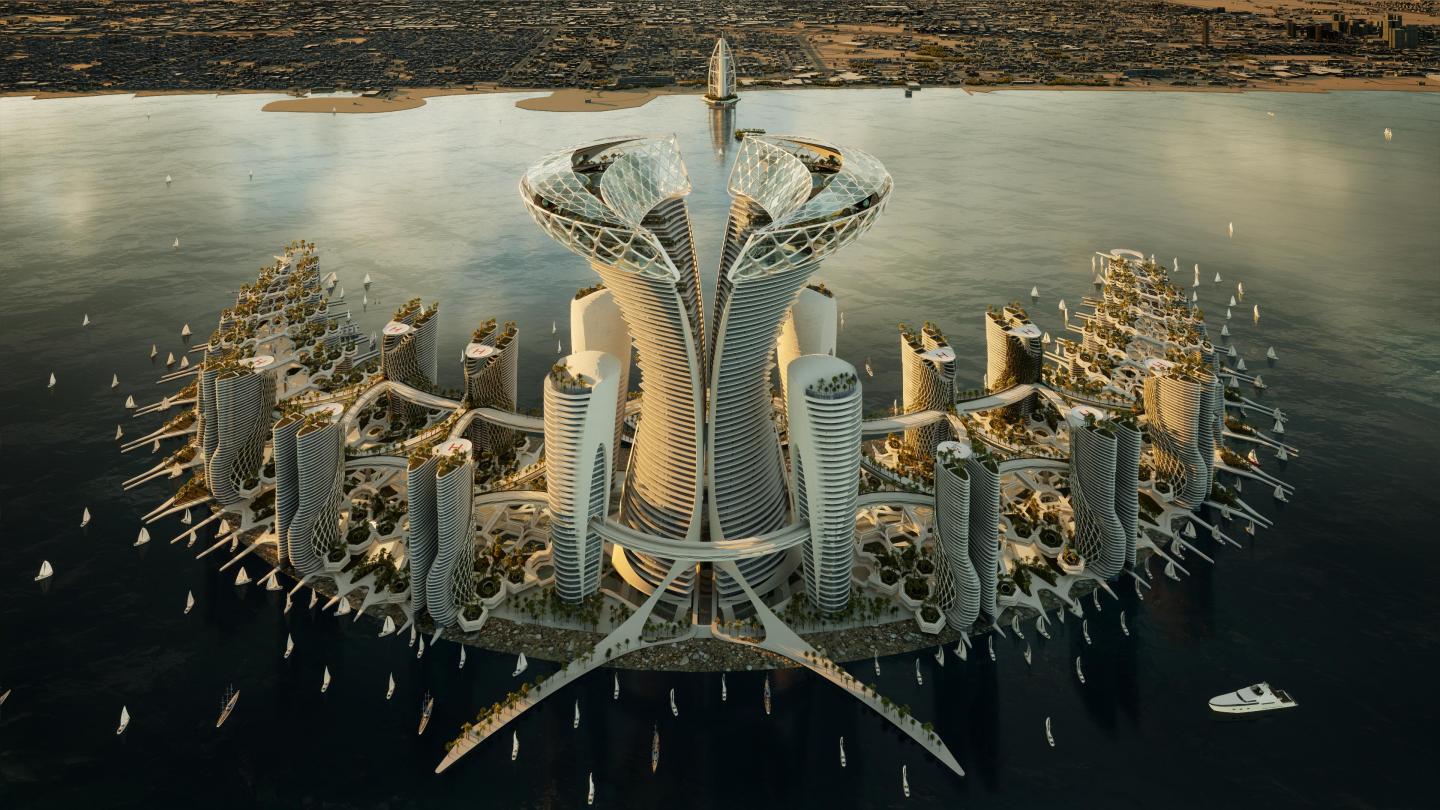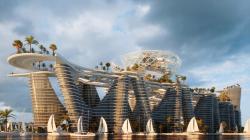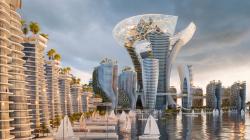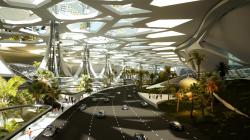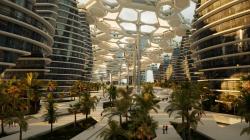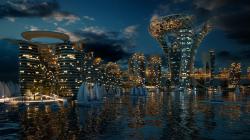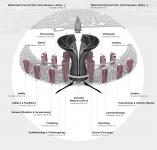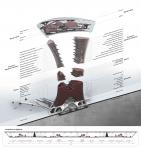Dubai Healthcare City
The idea of designing Ring Island Dubai is based on the approach and looking to the future and providing a multi-functional complex centered on medical services. The creative integration of a digital approach, sustainable architecture, geographic and social conditions of the region, and attention to the future needs of Dubai are indicators that have been considered in all stages of creativity and design and have led to the formation of the final result.
Access to this island will be underwater. Transportation systems like monorail and electric cars are planned, and different stations are designed to access every part of the island. Because of a pedestrian-oriented approach, the entrance to the island is located under the ground, and cars cannot come up and enter the island.
The crescent shape of the site plan symbolizes the architecture of Dubai’s region and the geometry of Burj al-Arab, as well as Muslim religious elements such as the lunar month. Also, the abstract combination of parametric forms and Islamic geometry patterns has been used in the grid designed for the site and higher levels.
The project’s program has three main zones: education and research in the middle and medical and residential. Also, the design of suspended paths between different parts and buildings has made walking on this island at different levels possible. Following this issue, there would be a unique view of Dubai and the Persian Gulf by being in any part of the island and at any level.
The terraces and roofs covered with different plants, in addition to increasing the air quality, have given this island a green and shaded view at other times of the day. Due to Dubai's hot and humid climate, it is an essential innovation in design.
The development of the Dubai Healthcare Center
The central tower of the island, with an area of one million square meters, has two general parts: the base of the building, with an area of 670,000 square meters, is dedicated to educational and academic activities, and the crescent on it, with an area of 330,000 square meters, is dedicated to functions including the exhibition hall, research, and development department, science and technology park, library and exhibition of digital achievements. After the central skyscraper, 14 towers with medical functions are added, and on the two ends of the island, 24 hotels are located. All these buildings are symmetrically arranged on both sides of the central skyscraper.
In conclusion, you can see the whole project in 5 layers:
• The first layer is underground and dedicated to cars, pedestrians, parking, and green spaces.
• For the next level, we have predicted futuristic transportation.
• Then, in the site plan, the buildings are located
• The next layer is the suspended path with parametric and Islamic patterns in the residential zone (hotels)
• Finally, we have suspended sterile paths again with parametric and Islamic patterns among the medical towers
The sustainable approach of the Dubai Healthcare Center
Along with all the design principles considered for Dubai Healthcare Center, we had a sustainable approach in all design stages. The design of green spaces is considered not only in the site plan but also in all the levels of the buildings. The deep and green terraces in the residential area and having enough light due to shade provide a suitable space for the residents to rest and enjoy the view of the city and the Persian Gulf. Also, the suspended paths connecting the hotels offer excellent and favorable shade with fresh air flow for pedestrians as it approaches the ground and double green spaces.
Also, the multi-functional approach of this project will ensure that those who come to it for treatment will not need to stay in other Dubai hotels, and the hotels designed in this complex with the highest possible standards will be responsive to tourists. On the other hand, the research department is another turning point that will work in a complementary way to the medical department. Finally, we will have a collection that will face the sustainability standards from different social, economic, and environmental perspectives.
2023
Total Area: 670,000 square meters
Primary Materials: Aluminum, Glass
The Artificial Island consists of 1. the Central Tower for research and academic purposes, 2. 14 towers for medical uses 3. 24 Hotel and Residential Buildings, all connected via five different layers of access routes.
Principal Architect: Mohamad Rahimizadeh
Architect: Mohamad Ramezankhani
Design Team: Maede Moallemi, Mohamadreza Ghasemi, Sara Rajabi, Ziba Baghban
